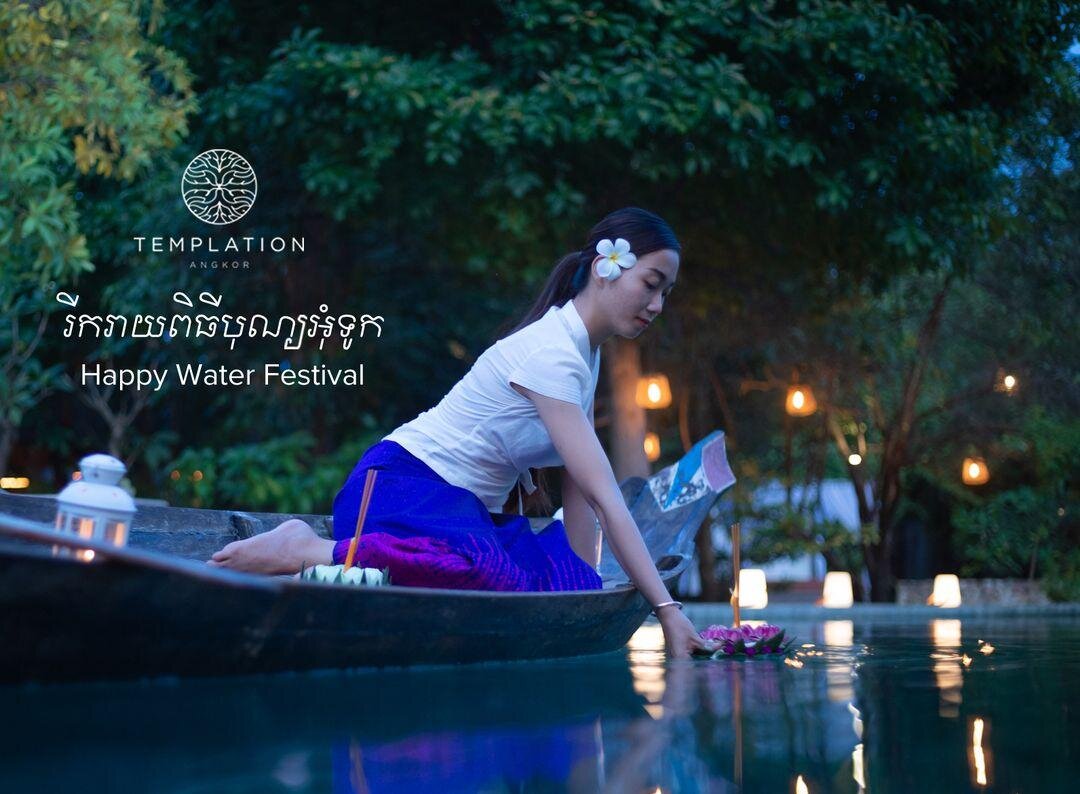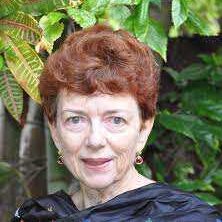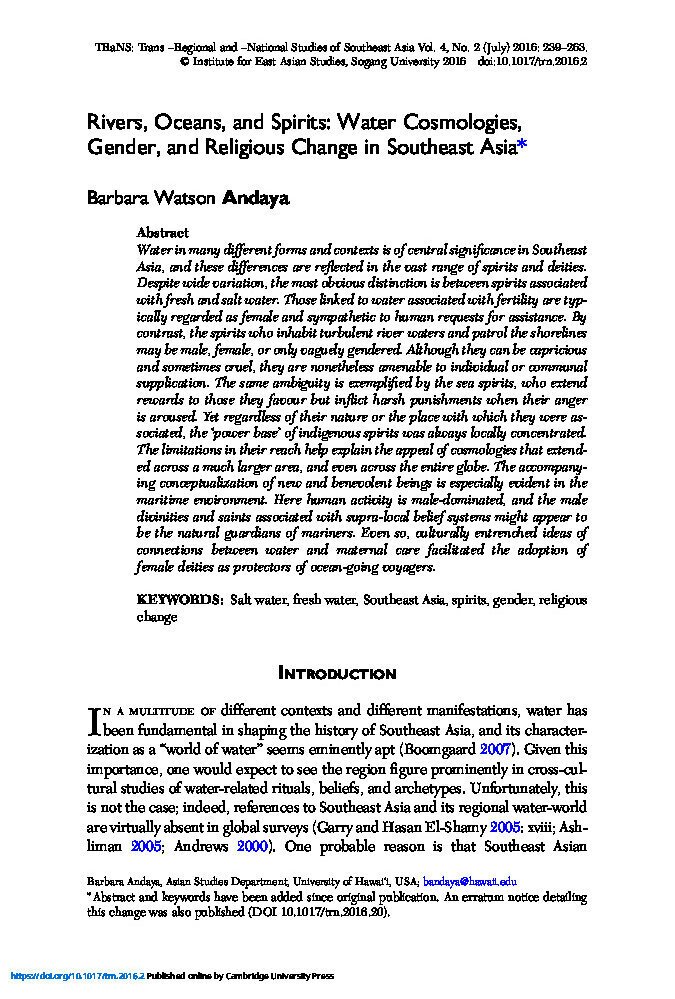Rivers, Oceans, and Spirits: Water Cosmologies, Gender, and Religious Change in Southeast Asia
by Barbara Watson Andaya
The centrality of water in Southeast Asian cosmologies.

- Publication
- TRaNS, Vol. 4, No. 2 : 239–263. © Institute for East Asian Studies, Sogang University 2016
- Published
- July 2016
- Author
- Barbara Watson Andaya
- Pages
- 25
- DOI
- 10.1017/trn.2016.2
- Language
- English
pdf 336.2 KB
From Mount Koulen’s miraculous springs to the deities and spirits revered by seafarers from the Malay peninsula, this cross-cultural study explores the status of water in regional myths and cosmologies.
Noting that ‘in Southeast Asian mythologies, the links between water, fertility and extraordinary events is a recurring theme’, the author develops one of her favorite research themes in the region’s history, the gender principle. ‘For Thais the very word for river, ‘water mother’ (mae naam), encapsulates the notion of nurturing care. Yet water and its links with the female can also be activated more forcefully. In the Theravada Buddhist countries of mainland Southeast Asia one of the most well-known deities is the earth goddess, celebrated in innumerable stories because of her role in drowning the army of Mara, the evil one, by ringing water out of her hair.’
The spiritual and magical meaning of water has been eroded by modernity, remarks the author in closing. ‘The territorial guardianship of water spirits is no longer relevant as Southeast Asian states carve out national zones of influence, as global influences encourage a more sceptical attitude towards spirit propitiation, and as religious disapproval becomes more entrenched. Furthermore, travel on water is far less important than once was the case. The power of spirits to bring about a shipwreck or to overturn a boat in turbulent water has been challenged by modern technologies, and in some cases, as in the blasting of rapids on the upper Mekong, has resulted in the destruction of spirit domains.We seem to be entering a new chapter of human history in which, as one elderly Thai informant remarked more than forty years ago, “It isn’t the same as in the past. The spirits aren’t so powerful any more”.” (see Richard Lando, 1983, The spirits aren’t so powerful any more: spirit belief and irrigation organization in North Thailand. Journal of the Siam Society 71, 121 – 148).
Photo: Water Festival 2021 at Templation Angkor Resort (photo DR)
Tags: water, rivers, sea, crosscultural studies, Southeast Asia, India, China, maritime routes, women, female deities, mythology, spirits, gender roles, Kbal Spean, Tonle Sap
About the Author

Barbara Watson Andaya
Dr. Barbara Watson Andaya is an Australian historian, Professor in the Asian Studies Program at the University of Hawai’i and former Director of the Center for Southeast Asian Studies.
In 2005-06 she was President of the American Association of Asian Studies. Educated at the University of Sydney (BA, Dip.Ed.), she received an East West Center grant in 1966 and obtained her MA in history at the University of Hawai’i. She subsequently went on to study for her Ph.D. at Cornell University with a specialization in Southeast Asian history.
Her career has involved teaching and researching in Malaysia, Australia, New Zealand, Indonesia, the Netherlands, and since 1994, Hawai’i. She maintains an active teaching and research interest across all Southeast Asia, but her specific area of expertise is the western Malay-Indonesia archipelago.
In 2000 she received a John Simon Guggenheim Award, which resulted in The Flaming Womb: Repositioning Women in Southeast Asian History, 1500 – 1800. She is currently working on a book tentatively entitled Gender and Sexuality in Southeast Asia and is also General editor of the new Cambridge History of Southeast Asia.

